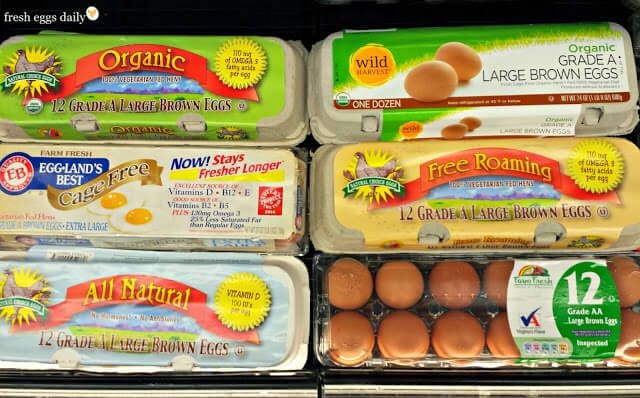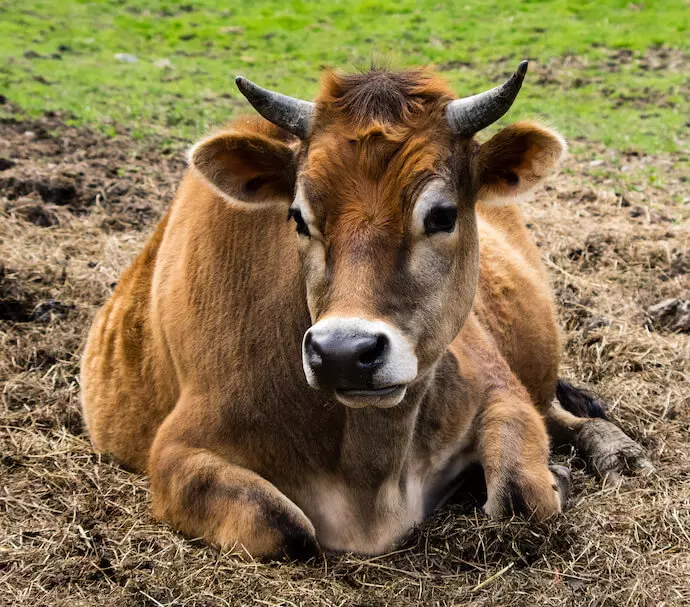
Ask Chef Linda: Labels on egg cartons
Dear Chef Linda, Thanks for your wonderful recipes however, we still do eat eggs; they are free-range, organically raised, and vegetarian fed. Is this considered “cruelty-free” or am I still deluding myself? Ann Dear Ann,
Without wanting to disappoint you, I’m sorry to say that commercial eggs are never cruelty-free. We can fault the marketing mavens for helping you to delude yourself; the myths behind the labels on egg cartons are widespread and designed to delude you into feeling good about your purchase. Let’s put aside for the moment the larger issue, which is that these animals are being exploited to serve our tastes, and look at the myths behind the labels we see on egg cartons:
Cage-Free
We assume it means chickens are living free on a farm, maybe in a big red barn, pecking at bugs, roosting, and that they are generally happy because they aren’t living four to five deep in a battery cage. What it actually means is that the birds live still live in terribly crowded conditions (with about 1 square foot of space per bird) in large industrial barns that contain dangerous levels of noxious ammonia from their waste. Air quality in these aviaries is poor and hens have twice the likelihood of dying in these conditions. And in order to live in these high-stress conditions, hens have their beaks forcibly mutilated to minimize the damage they cause each other when crowded together.

Free-Range
The image of free-range suggests expansive green hills, freedom, and good quality of life doing all the things chickens were born to do. Free-range actually means a bird gets a “cage-free” life, as mentioned above, plus “access to the outdoors.” “Access” typically means there is a door, or several small doors, to the outside. Because of the crowding, most birds never get near the doors. It’s widely known that the vast majority of free-range birds in commercial egg facilities never actually go outside.Vegetarian-Fed
The irony in this claim is made possible only because most consumers are ignorant about what chickens should eat. Chickens are not vegetarian by design and, in fact, get a large portion of their protein from worms, grubs, and other bugs they find while pecking in the dirt. Unfortunately, “industrial hens” don’t ever have an opportunity to participate in their natural behaviors and are typically fed a mixture of corn mixed with amino acids. The omega-3 labels we often see that sound beneficial mean that the corn feed is likely to be mixed with flaxseed. Vegetarian-fed only confirms that the chickens are being deprived of their natural diet.Organic
Egg producers who use the term “organic” in their labeling are subject to USDA regulation. Organic eggs must come from chickens that are free-range, fed organic feed (no synthetic pesticides used to grow the corn), and receive no hormones or antibiotics. Despite this, organic eggs still come from birds that still live in crowded, industrial aviaries and suffer the same unhealthy and inhumane conditions, though some would say, they are marginally better.
Antibiotic and Hormone-Free
Talk about misleading. Egg-laying hens are not given hormones. According to the U.S. Poultry Association, this is true for all hens involved in commercial egg production in the United States so this claim is meaningless. As far as antibiotics, the list of antibiotics allowed by the FDA for use in egg-laying flocks is quite small, only three. Also, it is estimated that only a small percentage of laying flocks producing conventional eggs ever receive antibiotics due to the use of other practices. If any egg-laying flock does receive an antibiotic, it is usually under the supervision of a veterinarian and only for a short period of time to treat a specific disease outbreak or for prevention of a recurring disease on that farm. These claims have little or no value to an educated consumer. The evidence is clear that there are really no humane eggs. But add to this what happens after these hens stop laying eggs. Their bodies are exhausted from the demands of overproducing eggs so they’re sold and slaughtered for their meat. So by virtue of eating eggs, we’re really part of the industry that produces and sells chicken meat. Vegetarians who eat eggs may not be aware of this connection. It’s not always easy to be the bearer of this news and we share it without judgment for the choices you make. The fact that you have reduced the animal products in your diet is something to feel really good about, because every time you choose a compassionate meal, it really does help. Now that you have more information on misleading labeling practices, you can thoughtfully consider your choices in the future. Thank you for asking and thinking about what you eat.Add Love + Stir, Compassionate Cuisine, Sanctuary Journal, Vegan Lifestyle
Tagscommercial eggs, cruelty-free eggs, eggs, humane eggs
Comments are closed.






Disappointing- However, it is good to know the truth about these deceitful labels-